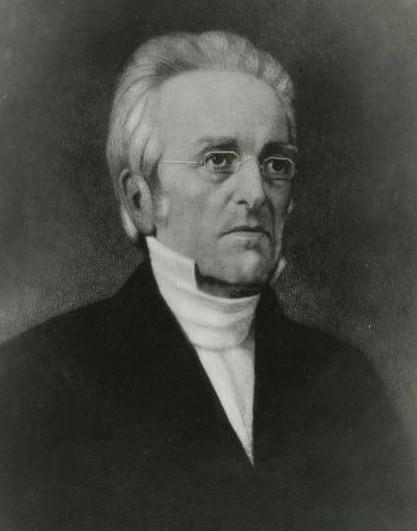Additional information can be found in Elliott’s Wikipedia page; a biographical sketch on the website of the Dickinson College Archives & Special Collections; and Alfred Nevin, Encyclopaedia of the Presbyterian Church in the United States of America (Philadelphia: Presbyterian Publishing Co, 1884).
-

Elliott User Guide
Robert H. Ellison
The User Guide for the Library of Appalachian Preaching is a Google Sheet that can be searched, sorted, and downloaded for offline use.
This part of the Guide provides information about Elliott's sermons and addresses. It includes the title, scripture text, date and place the discourse was delivered (if known), and so on. This information is available in the master list of sermons as well.
-

Preaching the Word, an Antidote to Error
David Elliott
This sermon, on 2 Timothy 4:1-4, appeared in the May 1835 issue of the Pittsburgh-based Presbyterian Preacher; at the time of its publication, Elliott was a pastor in Washington, Pennsylvania.
-

Grounds of Lamenting the Death of a Minister of Jesus Christ
David Elliott
This sermon, on Acts 8:2, was “Occasioned by the death of Obadiah Jennings, of Nashville, Tennessee” (p. 105). It appeared in the December 1834 issue of the Pittsburgh-based Presbyterian Preacher; at the time of its publication, Elliott was a pastor in Washington, Pennsylvania.
-

Decrees of God
David Elliott
This sermon, on Ephesians 1:11, appeared in the January 1833 issue of the Pittsburgh-based Presbyterian Preacher. At the time of its publication, Elliott was a pastor in Washington, Pennsylvania.
-

Inaugural Address delivered Nov. 2, 1830
David Elliott
In 1830 and 1831, Elliott served as the “Acting Principal” of Washington College in Washington, Pennsylvania. His inaugural address outlined what he believed to be “the leading object of education” and concluded with these words: “Let the aspirations of our hearts, then, ascend daily to God on behalf of this seminary of learning, that it may be a nursery from which multitudes of intelligent and well-taught youth may spring up, and go forth to bless their country and the world” (pp. 3, 11).

